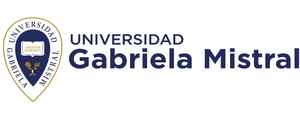Gabriela Mistral University Repository
The Gabriela Mistral University Library has developed the following Academic Repository in order to preserve, disseminate and make available the full-text contents of the academic production developed by the different actors in the academic and research field of the University.
The UGM University at the beginning of the year 2017 incorporated the UCINF University, also adding that collection where we find memories, theses, degree works, academic magazines, speeches, books, digital and sound files. Contact: repositorio@ugm.cl
The UGM University at the beginning of the year 2017 incorporated the UCINF University, also adding that collection where we find memories, theses, degree works, academic magazines, speeches, books, digital and sound files. Contact: repositorio@ugm.cl
Hacia una definición holística del Bienestar: Integrando conceptualizaciones desde la sociología, la psicología y la economía
| dc.contributor.author | Unanue Manríquez, Jesús | |
| dc.contributor.author | Unanue Manríquez, Wenceslao | |
| dc.date.accessioned | 2022-06-06T13:48:22Z | |
| dc.date.available | 2022-06-06T13:48:22Z | |
| dc.date.issued | 2021 | |
| dc.identifier.citation | Revista Akadèmeia Vol. 20, Núm. 2 (2021): Noviembre - Diciembre pp. 6-25 | es_ES |
| dc.identifier.issn | 0718-9397 | |
| dc.identifier.uri | http://repositorio.ugm.cl/handle/20.500.12743/2162 | |
| dc.description.abstract | La investigación científica ha demostrado por más de 50 años, los beneficios de la felicidad y el bienestar para los individuos, las organizaciones, sociedades y el planeta. Sin embargo, actualmente existentes diferencias significativas en la conceptualización y medición del bienestar. Por ejemplo, mientras la sociología se focaliza mayoritariamente en aspectos globales y en las condiciones sociales que afectan el bienestar de las personas, la psicología se centra fuertemente en aspectos individuales, y la economía en aspectos materiales y de ingresos. El principal objetivo de este artículo es discutir la importancia de integrar diferentes perspectivas existentes sobre bienestar. Avanzar en una concepción más holística del bienestar, permitirá ampliar y mejorar la calidad de las políticas públicas que permitan utilizar este indicador para mejorar la calidad de vida de la población. Importantes implicancias teóricas y prácticas desarrollan este artículo, especialmente centrado en el ámbito educación y el llamado “Proyecto Aula Segura”. | es_ES |
| dc.description.abstract | Scientific research has demonstrated for more than 50 years the benefits of happiness and well being for individuals, organizations, societies and the planet. However, there are currently significant differences in the conceptualization and measurement of well-being. For example, while sociology focuses mainly on global aspects and social conditions that affect people's well being, psychology focuses heavily on individual aspects, and economics on material and income aspects. The main objective of this article is to discuss the importance of integrating different existing perspectives on well-being. Advancing in a more holistic conception of well-being will make it possible to expand and improve the quality of public policies that allow the use of this indicator to improve the quality of life of the population. Important theoretical and practical implications develop this article, especially focused on the field of education and the so-called "Proyecto Aula Segura (“Safe Classroom Project"). Keywords: well-being; happiness; education; public policies. | |
| dc.language.iso | es | es_ES |
| dc.publisher | Revista Akadèmeia | es_ES |
| dc.rights | Attribution-NonCommercial-NoDerivs 3.0 United States | * |
| dc.rights.uri | http://creativecommons.org/licenses/by-nc-nd/3.0/us/ | * |
| dc.subject | Bienestar | es_ES |
| dc.subject | Felicidad | es_ES |
| dc.subject | Educación | es_ES |
| dc.subject | Políticas públicas | es_ES |
| dc.title | Hacia una definición holística del Bienestar: Integrando conceptualizaciones desde la sociología, la psicología y la economía | es_ES |
| dc.title.alternative | Towards a holistic definition of Well-being: Integrating conceptualizations from sociology, psychology and economics | es_ES |
| dc.type | Article | es_ES |



